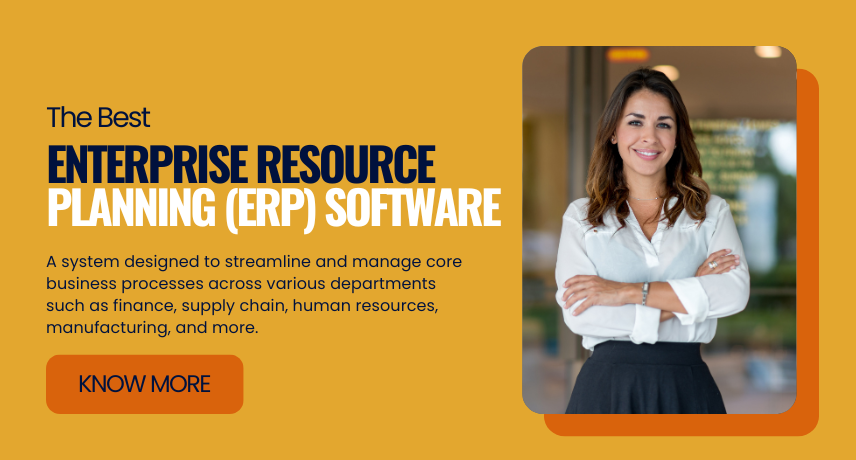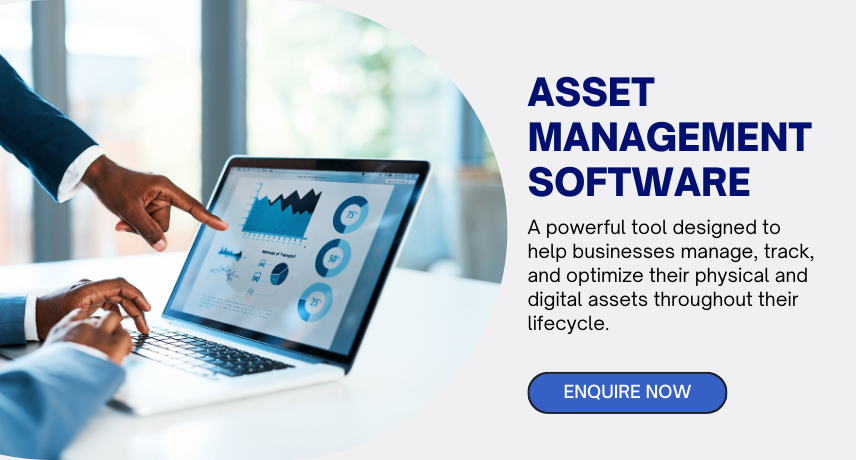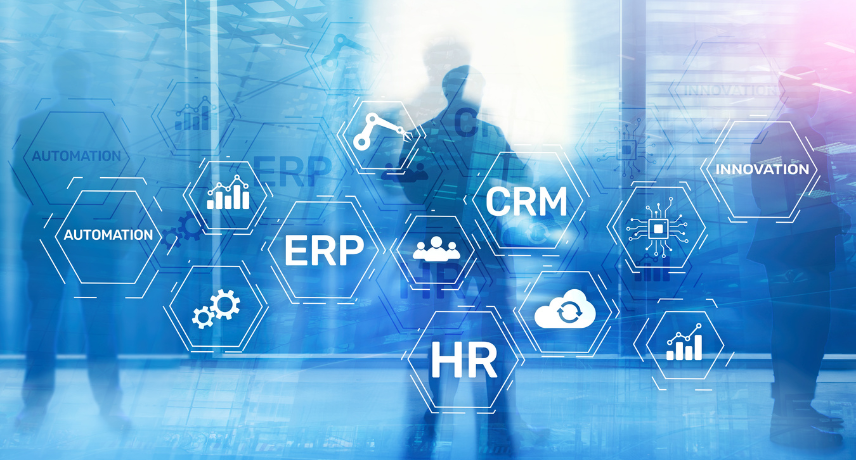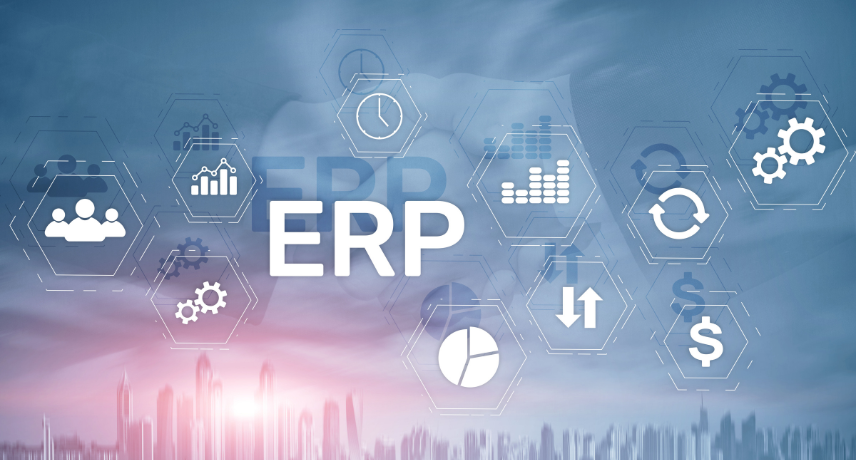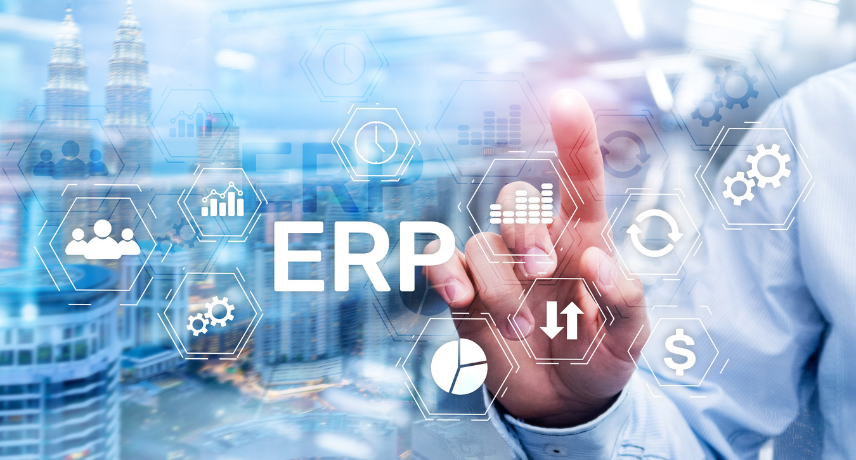Enquiry Form
What is ERP Software?
Enterprise Resource Planning (ERP) software is an integrated system designed to streamline and manage core business processes across various departments such as finance, supply chain, human resources, manufacturing, and more. By centralizing data and automating workflows, ERP software improves operational efficiency, enhances collaboration, and provides actionable insights for better decision-making. Whether you’re a small business or a large enterprise, ERP software is essential for optimizing resources and driving growth.
What are the Best Features of ERP Software?

Centralized Data Management:
Consolidate data from different departments into a single, unified system.

Financial Management:
Manage accounting, budgeting, and financial reporting seamlessly.

Supply Chain Management:
Optimize procurement, inventory, and logistics processes.

Human Resource Management (HRM):
Automate payroll, recruitment, and employee management.

Customer Relationship Management (CRM):
Maintain customer records and enhance relationships.

Inventory Management:
Track stock levels and automate inventory replenishment.

Manufacturing Management:
Plan production schedules and monitor shop floor operations.

Project Management:
Track project timelines, budgets, and resources in real-time.

Sales and Order Management:
Automate sales workflows from order placement to delivery.

Reporting and Analytics:
Generate detailed reports and dashboards for data-driven decisions.

Workflow Automation:
Automate routine tasks to reduce manual errors and improve productivity.

Customizable Modules:
Adapt ERP functionality to meet industry-specific requirements.

Mobile Accessibility:
Access ERP tools on the go through mobile-friendly applications.

Third-Party Integration:
Seamlessly integrate with existing tools like CRM, e-commerce, and accounting software.

Data Security and Compliance:
Protect sensitive data with advanced security measures and ensure regulatory compliance.
Benefits of ERP Software
Here are eight key benefits of implementing ERP software for your organization:
- Improved Efficiency: Streamline business processes and eliminate redundant tasks.
- Real-Time Insights: Access up-to-date information for faster and better decision-making.
- Enhanced Collaboration: Break down silos and enable departments to work together seamlessly.
- Scalability: Scale the software to accommodate business growth and evolving needs.
- Cost Savings: Reduce operational costs through automation and optimized resource allocation.
- Regulatory Compliance: Stay compliant with industry and government regulations effortlessly.
- Customer Satisfaction: Improve customer experience through efficient order and service management.
- Centralized Control: Manage all business operations from a single, unified platform.
Which Businesses Need ERP Software?
ERP software is vital for businesses across industries, enabling them to manage operations efficiently. Here’s how it caters to different sectors:

- Production Planning: Streamline production schedules and resource allocation.
- Inventory Control: Track raw materials and finished goods accurately.
- Quality Management: Monitor product quality and compliance.
- Supply Chain Optimization: Enhance supplier collaboration and logistics.
- Cost Tracking: Analyze production costs to improve profitability.

- Inventory Management: Monitor stock levels across multiple locations.
- Order Fulfillment: Automate the order-to-delivery process.
- Customer Insights: Analyze purchasing behavior to refine strategies.
- Point of Sale Integration: Sync with POS systems for real-time sales tracking.
- Omnichannel Operations: Manage online and offline sales channels seamlessly.

- Patient Management: Track patient records, billing, and appointment scheduling.
- Resource Optimization: Allocate staff and equipment efficiently.
- Regulatory Compliance: Ensure adherence to healthcare standards.
- Supply Chain Management: Monitor medical supplies and equipment inventory.
- Financial Management: Manage expenses and streamline insurance claims.

- Project Management: Monitor project timelines, budgets, and resources.
- Contract Management: Manage vendor and subcontractor agreements effectively.
- Cost Estimation: Generate accurate cost estimates for projects.
- Document Management: Store and organize project-related documents securely.
- Regulatory Compliance: Ensure adherence to industry standards and regulations.
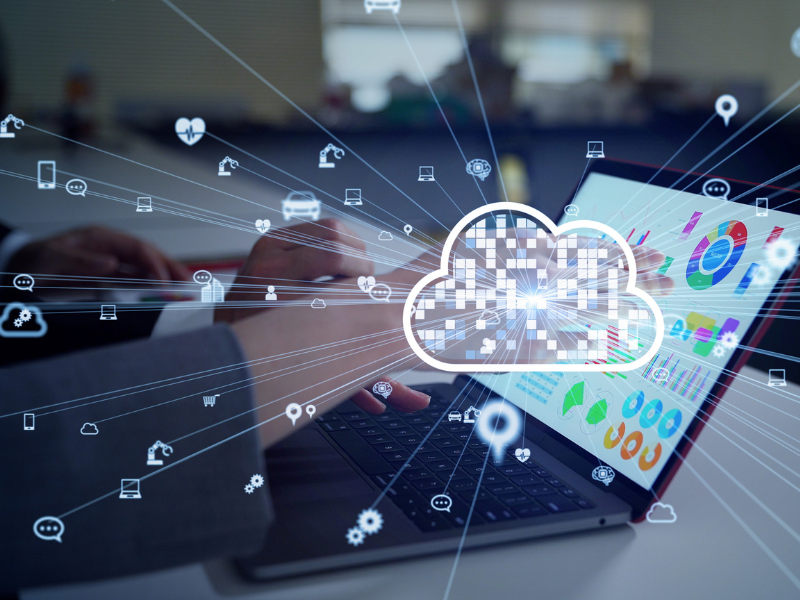
- Time Tracking: Monitor billable hours for accurate invoicing.
- Project Budgeting: Plan and track project costs in real time.
- Resource Allocation: Assign team members to projects efficiently.
- Client Management: Maintain detailed client records for personalized service.
- Expense Reporting: Track and report project-related expenses accurately.
How it Works

- Data Integration: Connect all business processes and departments into a unified system.
- Automation: Automate repetitive tasks like invoicing, inventory updates, and payroll processing.
- Real-Time Tracking: Monitor operations and performance metrics in real time.
- Collaboration: Enable cross-departmental communication through shared tools.
- Reporting: Generate actionable insights through customizable reports and dashboards.
- Scalability: Expand the software as your business grows or changes.
Transform Your Business with Powerful ERP Software | Streamline Operations & Boost Growth
Discover how ERP (Enterprise Resource Planning) software revolutionizes business operations and management. From automating processes to enhancing collaboration and decision-making, explore the benefits of a robust ERP system for your organization.
Latest News
Stay updated with latest industry information
